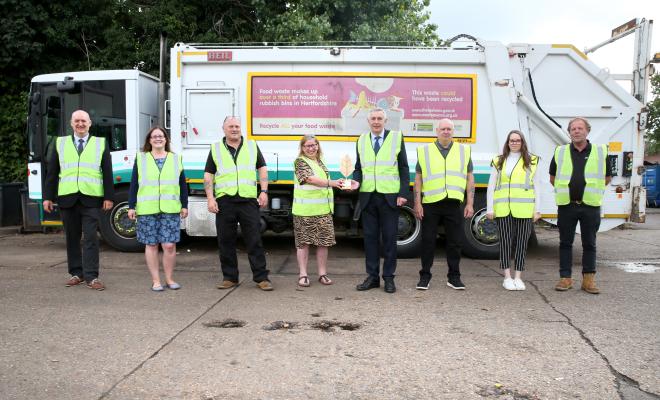Waste
20 Sep 2024
All stages of food production contribute to climate change, but food waste in particular, contributes to avoidable emissions. Read how Bristol City Council is making progress towards becoming a zero-waste city, through expanding services to its community and engaging them in waste-reducing activities. Reducing food waste forms part of Action 37 of the 50-point Climate Action Plan for Councils.
20 Sep 2024
Find out how the York and North Yorkshire Local Enterprise Partnership has used its collective power to push for regional net zero targets and launch a Circular Economy Strategy to minimise waste and pollution across City of York and North Yorkshire County councils. Using council membership in Local Enterprise Partnerships to ensure all decisions contribute to a green economy is part of Action 42 of the 50-point Climate Action Plan for Councils.
20 Sep 2024
Learn how Three Rivers District Council became a top recycler, as part of the 50-point Climate Action Plan for Councils. Increasing recycling is a big part of Action 36, to aim to send no waste to landfills or incineration.
20 Sep 2024
Learn how Derry and Strabane Council created a zero-waste circular economy strategy, as part of 50 actions for councils under Action 38: adopt circular-economy waste policies in relevant plans and contracts.
20 Sep 2024
Learn how Leeds City Council uses sustainable food to help schools lower their carbon footprint through the meals they serve. Influencing others such as schools to purchase green meals is part of Action 44 in the 50-point Climate Action Plan for Councils.
20 Sep 2024
Learn how Pembrokeshire County Council created a share, repair and reuse network that cuts waste and develops employment skills for local people. Promoting community sharing and reuse to reduce waste and unnecessary consumption is Action 39 in the 50-point Climate Action Plan for Councils.
20 Sep 2024
Learn how Durham County Council reduced waste with a ban on single-use plastic in council offices and premises inspiring the wider community to tackle the problem. The ban forms part of 50 climate actions for councils under Action 40.
These case studies were produced by Ashden and Friends of the Earth, with support from ADEPT (Association of Directors of Environment, Economy, Planning and Transport), Climate Emergency UK, Grantham Institute (Climate Change and the Environment, Imperial College London), London Environment Directors’ Network (LEDNet), and My Society.





